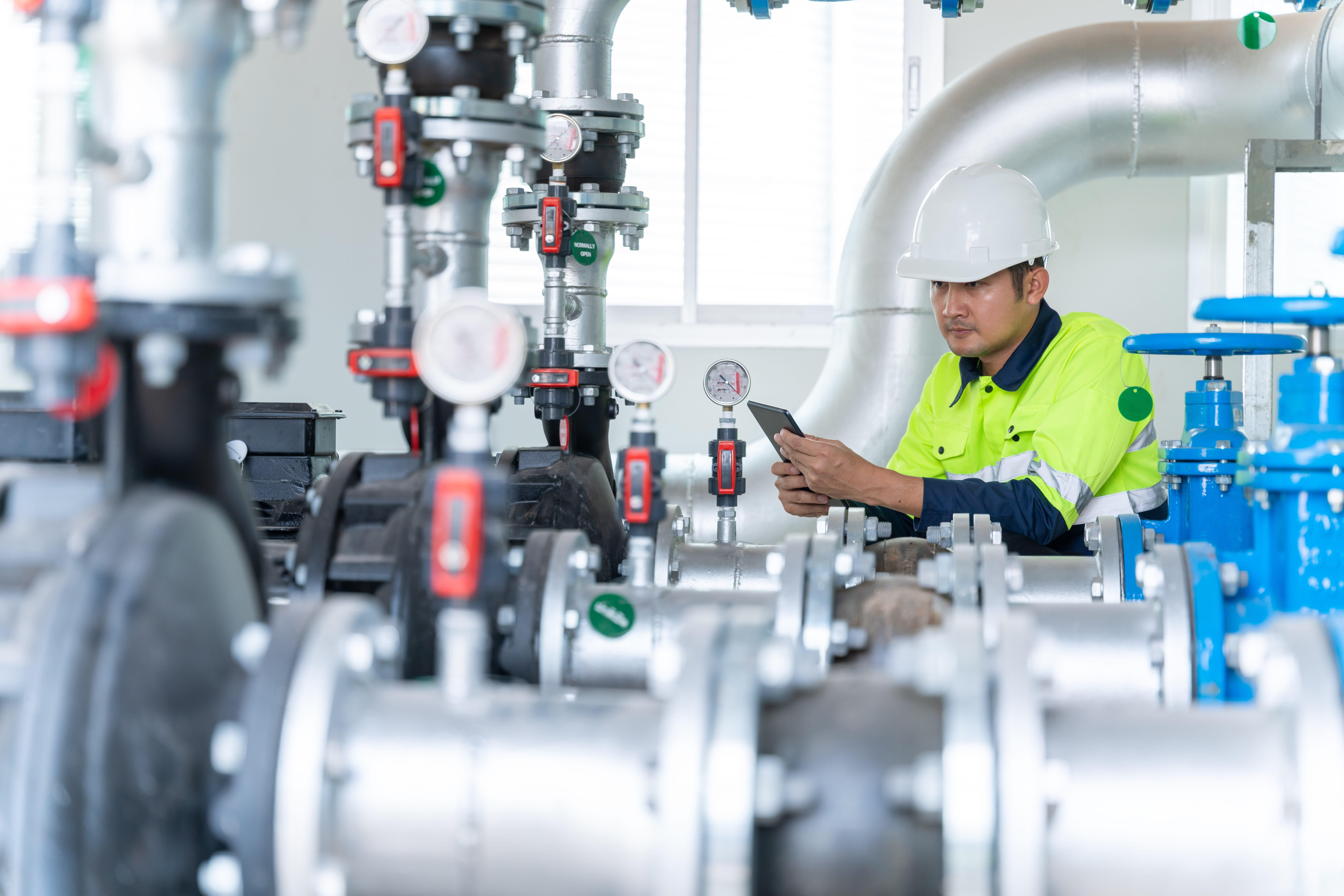- Published Jan 24, 2024
- Last Modified Jan 24, 2024
- 5 min
Energy-Efficient Industrial Water Management: Smart Metering and Pumping
Learn energy-efficient water management techniques and solutions through smart metering and pumping. Enhance your sustainability efforts with RS today.

In today's sustainability-driven era, energy-efficient water management is paramount for industries. Smart metering and advanced water pumping systems are essential yet frequently overlooked tools that can substantially aid this endeavor.
These components provide precise control and monitoring of water usage, a critical factor for businesses in the Philippines aiming to balance operational efficiency with environmental responsibility. By implementing these systems, industries adhere to ecological standards and uncover opportunities for reducing costs and enhancing energy management.

Smart Metering: Advancing Towards Efficient Energy and Water Management
In the Philippines, the issue of water shortages is becoming increasingly critical, particularly highlighted by the significant decrease in the water level of Angat Dam. This dam, integral to the region's water supply, providing 98% of the water requirements for Metro Manila, has now fallen below its operational level. The situation is poised to deteriorate further with the anticipated arrival of El Niño.
In light of these developments, there is a pronounced need to implement advanced and energy-efficient water management strategies.
A promising approach to addressing these challenges involves adopting ultrasonic flow meter sensor technology, a notable improvement over traditional mechanical water meters. This advancement brings numerous benefits for energy management in industrial water systems, including:
- Precise Real-Time Measurements: Ultrasonic sensors provide accurate flow rate data, essential for early leak detection, especially in low-flow conditions.
- Conservation and Energy Efficiency: The accuracy of smart metering helps in saving water and reducing energy waste due to unnecessary pumping.
- Demand-Based Management: Real-time monitoring of water usage patterns with these sensors supports adaptive supply adjustments.
- Aligned Water Distribution: Ensures efficient water distribution by aligning supply with actual consumption optimizing energy management in industrial water systems.
In industrial sectors such as manufacturing, these sensors offer precise insights into water usage, enabling factories to optimize cooling, cleaning, and processing operations. In agriculture, they provide farmers with accurate irrigation data, allowing for tailored water application to crops' specific needs, thereby preventing over-irrigation and conserving water.
By adopting smart metering, diverse sectors can effectively sustain the country's water resources and address the urgent water scarcity issues in the Philippines.
Water Pumps: Unlocking Energy Efficiency & Performance
Water pumps are also fundamental tools in the strategic management of water resources. These pumps are designed to ensure the efficient movement of water, whether for supplying it to necessary areas or for distribution purposes.
How Do Water Pumps Work?
Water pumps create a pressure difference, drawing water in and pushing it out, often through a system of pipes. Initially, they pull water into the pump, and then the mechanism increases the water's pressure using either centrifugal force or displacement. This pressurized water is then efficiently channeled through pipes for various applications, ensuring consistent flow and distribution in industrial processes.
Energy-Efficient Water Pump Usage and Management
To achieve greater energy efficiency when using water pumps, consider employing these strategic approaches:
1. Choosing the right pump size
Choose a pump size that aligns with the operation's specific requirements. A pump that's too large for its intended use can waste energy through excessive power consumption, while one that's too small may overwork to meet demands, leading to increased energy use and wear on hydraulic parts.
The right-sized pump operates within its optimal efficiency range, minimizing energy waste and ensuring cost-effective, long-term operation.
2. Select a high-efficiency pump model
When choosing from the different types of water pumps, prioritize models equipped with variable speed drives, which adapt the flow rate and pressure to meet the optimal industrial operation demands, enhancing energy efficiency. Additionally, ensure the pump’s impeller is designed for minimal hydraulic resistance, ensuring efficient flow and lower energy consumption.
These types of water pump models minimize turbulence and energy loss, contributing to a more consistent and efficient operation.
3. Use insulation for pipings
Efficient water pump management extends to utilizing pipe supplies, such as insulations. This approach involves wrapping pipes with insulating materials to minimize heat loss and maintain water temperature. Effective insulation can notably reduce energy consumption, especially in hot water systems.
Collectively, these industrial water management strategies collectively result in a more sustainable and cost-effective water supply system. This, in turn, contributes to a significant reduction in water wastage.
Partner with RS for Energy-Efficient Industrial Water Management Solutions

RS offers a range of certified water management solutions that empower industries to improve their water systems’ efficiency while optimizing operational performance. These solutions align with environmental responsibility, helping businesses meet their sustainability goals.
Learn more ways to enhance energy saving and management while ensuring Industrial Workplace Safety with RS today.
Popular Flow Sensor and Pipe Supply Brands
George Fischer
George Fischer (GF) is a trusted leader in supplying and manufacturing smart metering and piping systems. Their commitment to innovation ensures consistent delivery of high-quality, environmentally compliant piping solutions to meet the needs of various industries.
Related links
- How Automation & Control Gear Can Reduce Energy Consumption
- MikroElektronika LTE IoT Click SARA-R410M02B Sensor Add-On Board...
- Energy Management in Manufacturing Plants
- The Essential Role of pH Meters in Agricultural Sectors
- Energy Meters
- Reduce Office Energy Use with Efficient PC Power Supplies
- The Importance of Energy Audits for Businesses in the Philippines
- What to Look for in a pH Meter for Water Quality Testing